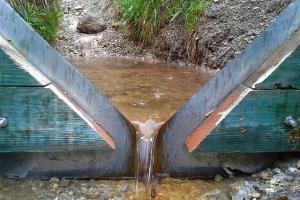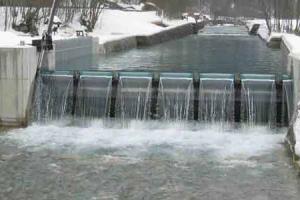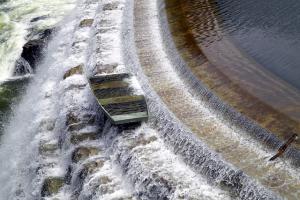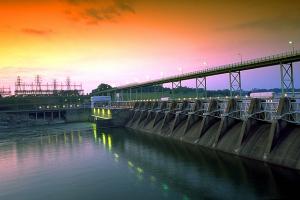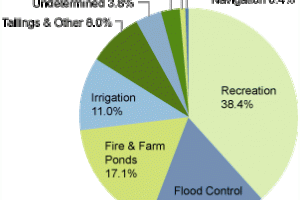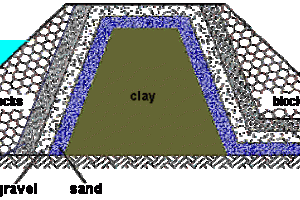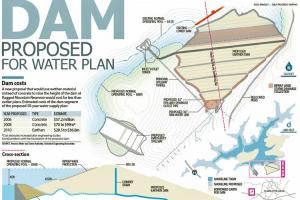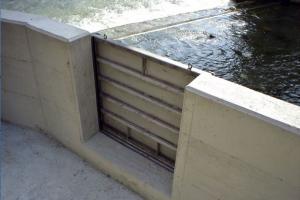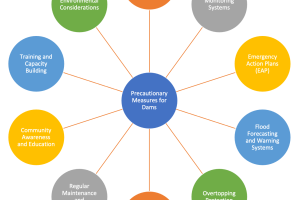Precautionary Measures for Dams
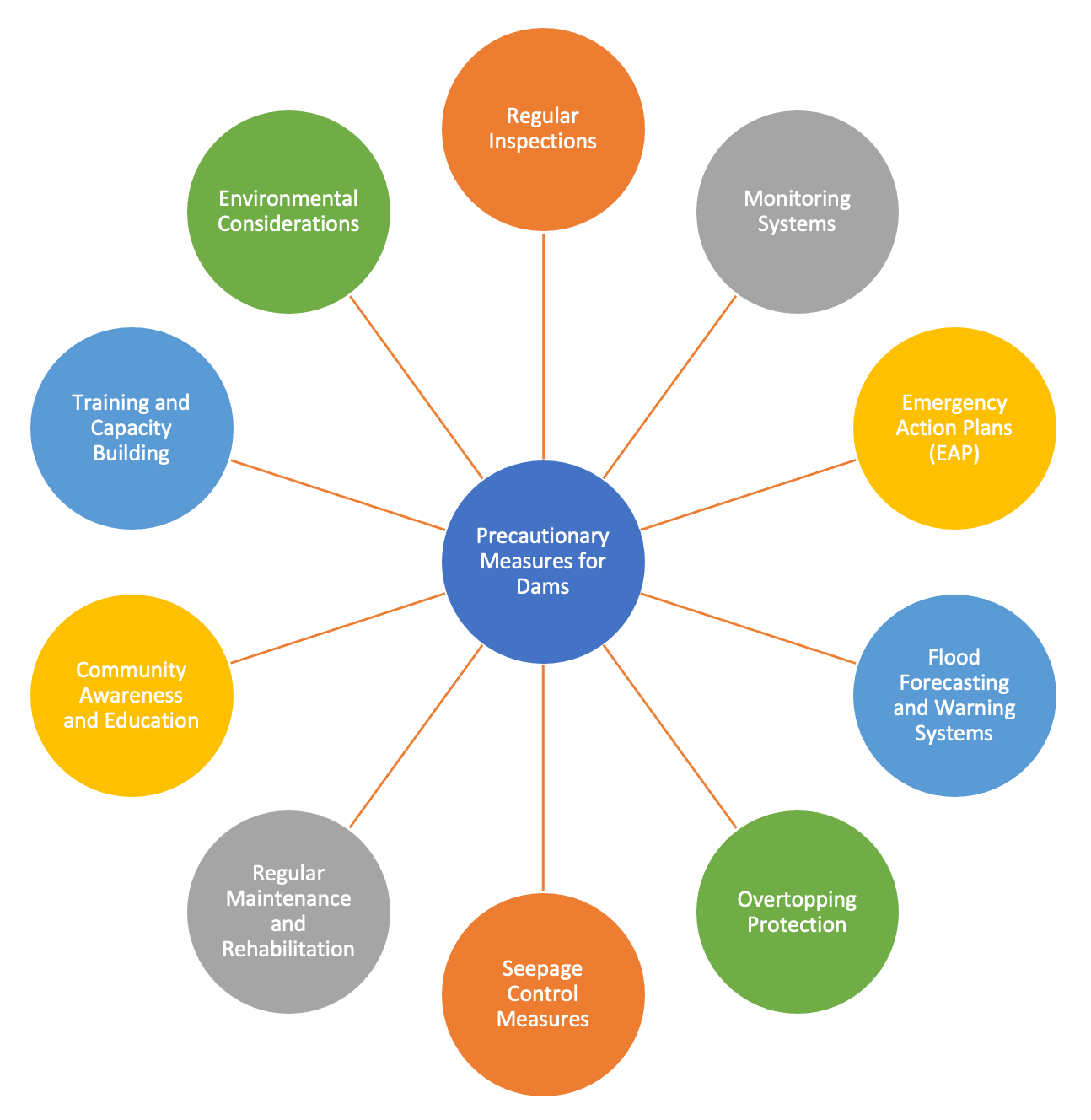
Dams are considered to be a vital element for the economic and energy growth of any country. As compared with other sources of energy Hydel energy proves to be more cheap and environmentally friendly. Being massive structures dams are needed to be dealt with with intense care and precautions to avoid any unpleasant event.
The periodic examination and evaluation of dams and reservoirs is of considerable importance for public safety. The intent of conducting periodic examinations and evaluations is to disclose conditions that can disrupt operations or threaten dam safety early enough for these conditions to be corrected. Some of these precautionary measures for new and existing dams are given below. Dams are considered to be a vital element for the economic and energy growth of any country. As compared with other sources of energy Hydel energy proves to be more cheap and environmentally friendly.
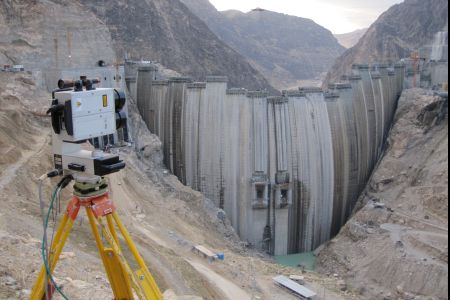
Planning and Design for New Dams
A new dam should be developed with state-of-the-art design techniques and construction practices and in a manner commensurate with its size, function, geologic setting, and potential hazard classification. Careful attention must be given to the following planning and design considerations, some of these considerations are:
- Selection of Dam site
- Estimation of the PMF and selection of the IDF
- Identification of earthquake source area and structure, estimation of MCEs, and identification of earthquake-related safety concerns
- Development of a site-specific geotechnical, Exploration program
- Design of the foundation, dam, and appurtenant structures
- Design of a system of instrumentation to monitor the performance of the dam, foundation, and appurtenant structures
- Development of an initial reservoir-filling and surveillance plan and reservoir drawdown criteria
- Preparation of the designer's operating criteria and identification of special considerations to be observed during construction and operation
- Provisions for the automatic, independent review by competent individuals of all design decisions, methods, procedures, and results related to dam safety
- Provisions to revise the design to make it compatible with conditions encountered during construction
Precautions in Construction of Dams
Quality construction is critical to dam safety. Construction personnel must be constantly alert to recognize and recommend the possible need for adjustments in the design, construction materials, and construction practices to properly provide for actual conditions encountered. The essential aspects of the construction program include:
- Keeping construction engineers and inspectors informed of the design philosophies, assumptions, and intent of the designer about foundation excavation and treatment, the usage and processing of construction materials, and the design concepts associated with the construction of embankments and concrete structures and with the installation of mechanical and electrical equipment
- Keeping construction engineers and inspectors informed of the field control measures and tests required to ensure quality construction
- Maintaining an adequately staffed and equipped materials laboratory at the dam site to meet the field testing requirements
- Providing a formal plan for construction inspection to ensure that each facet of essential work is accomplished in multi-shift operations
- Giving the Project Construction Engineer the authority to suspend work until all site conditions different from those anticipated are evaluated and the necessary design or construction changes are implemented
- Inspection of critical work stages, by the appropriate engineers or geologist (design and/or technical review personnel)
- Keeping a job diary and documentation that provides a complete history of the work
- Providing mapping and photographic documentation of the construction progress and significant events; e.g., geologic maps and photographs of final treated foundations.
Existing Dams
Operation and Maintenance
The operation and maintenance procedure implemented should ensure the safe operation of the dam and provide for timely repair of facilities. The essential procedures include:
- Preparing SOPs (Standing Operating Procedures)
- Training personnel in both normal and emergency operation and maintenance responsibilities and problem detection
- Maintaining a written record of reservoir, waterway, and mechanical equipment operations and maintenance activities
- Testing the full operation of spillway and outlet works gates regularly, using both primary and auxiliary power systems
- Providing for public safety and security against vandalism of essential operating equipment
- Establishing and maintaining communication links with local governmental agencies and authorities
- Preparing and maintaining current EPP's.
Periodic Examinations and Evaluations
The periodic examination and evaluation of dams and reservoirs is of considerable importance for public safety. The intent of conducting periodic examinations and evaluations is to disclose conditions that can disrupt operations or threaten dam safety early enough for these conditions to be corrected. All significant design data, computations, and engineering and management decisions should be documented and retained throughout the life of a dam. The documentation should cover investigations and design, construction plans and specifications, construction



